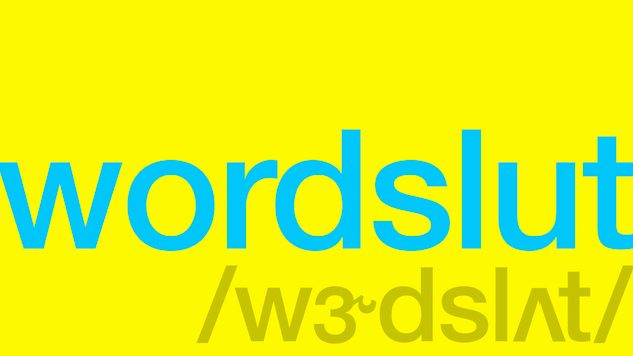Amanda Montell Talks Wordslut, Her Feminist Guide to Taking Back the English Language

“We take language for granted,” Amanda Montell says during our phone call. “We wield it so naturally every day that we don’t stop to analyze why we say the things we do.”
A linguistics graduate with a career in digital media, Montell bridges those two worlds in her new book, Wordslut. The text is a “feminist guide to taking back the English language,” serving as part history, part linguistics handbook and part cultural examination of what we’re actually saying.
“I was terrified working on this project early on,” Montell says. “This topic is so massive there is no way to cover it all in a 300-page book.”
 But Montell had experience using popular culture as a conduit for linguistics. She created the web series The Dirty Word for Jill Soloway’s former web platform Wifey, where she developed her voice while bringing linguistics to the masses.
But Montell had experience using popular culture as a conduit for linguistics. She created the web series The Dirty Word for Jill Soloway’s former web platform Wifey, where she developed her voice while bringing linguistics to the masses.
“I would bring a gender and language lens to pop culture events in these very cheeky five-minute videos,” Montell says. The Dirty Word caught the attention of her agent, and Wordslut evolved from that early synthesis of topics.
One of the book’s central conceits is that, although it’s used to reinforce gender expectations and sexist cultural standards, English itself is neutral. This is a crucial point, particularly when coupled with the argument that our rigid beliefs about grammar are incorrect. Montell explains that the idea of “right” or “wrong” English is fundamentally flawed.
“The English language evolved organically way, way before our current gender stereotypes and expectations were solidified,” she says. “There’s nothing about our consonants—the foundation of our grammar—that forces you to use English in a sexist way.”
Montell highlights insults like “bitch” and “slut,” which have no masculine equivalent and speak to gendered notions of morality, as examples of gender-neutral words that became sexist over time. She also explores the stigma surrounding vocal traits, like upspeak and vocal fry, which have been negatively equated with young women in English-speaking societies.
Men, as Montell notes on our call, have been socialized not to be vulnerable with one another, while women build community through vulnerability. This has created differences in the very way we interpret patterns of speech; when women use hedges (“I feel”) and affirmations (“right” or “yes”), men might hear them as signs of insecurity or interruptions. “[That’s] only because they have a different vocabulary for what community sounds like,” Montell says.
Wordslut also looks beyond gender-normative speech to tackle current changes in English, namely the use of gender-neutral pronouns and phrasing. This is an area where even self-identifying progressives might have strict ideas of what the English language can and cannot do; they/them might be the most polarizing four-letter words on the scene right now.
“We live in a time when becoming more educated about different identities and more socially accepting of those identities is becoming more important,” Montell says.
With social shifts come linguistic shifts, but the relationship between the two is complex. “It’s a simultaneous process,” she says. “You cannot force anyone to use language they don’t want to use, and you can’t force anyone to subscribe to an ideology they don’t want to subscribe to. But at the end of the day, your language does reflect your politics.”
Intentionality and precision of language is not just a matter of doing what’s right but a matter of communicating effectively; thinking through what we say and what we mean to better align the two is a worthwhile endeavor. But many people are resistant to doing so, wanting to lean on intended meaning instead.
“People want permission to say whatever they want as long as their intentions are good,” Montell says. She gives the example of “you guys” as a seemingly innocuous gender-neutral way of addressing multiple people. But that gender-neutrality fades when you critically consider the phrase. “You gals would never earn the same amount of lexical love, and that’s reflective of how much we value masculinity in this culture and see masculinity as the default.”
Montell recognizes that getting the English-speaking world to stop saying “you guys” is a cosmetic fix. There are limitations to what language can and cannot do; it’s a reflection of the society and culture in which it evolves, and it’s not a magic bullet against bigotry.
“Changing our language isn’t going to be what makes social change happen,” Montell says.
But if language is expression rather than catalyst, then adapting our language is a way to embrace a changing world. “We can reflect the ideologies we really believe in with our language,” Montell says, “and that’s why we need to be as educated as possible about where our language comes from.”
Bridey Heing is a freelance writer based in Washington, DC. More of her work can be found here.